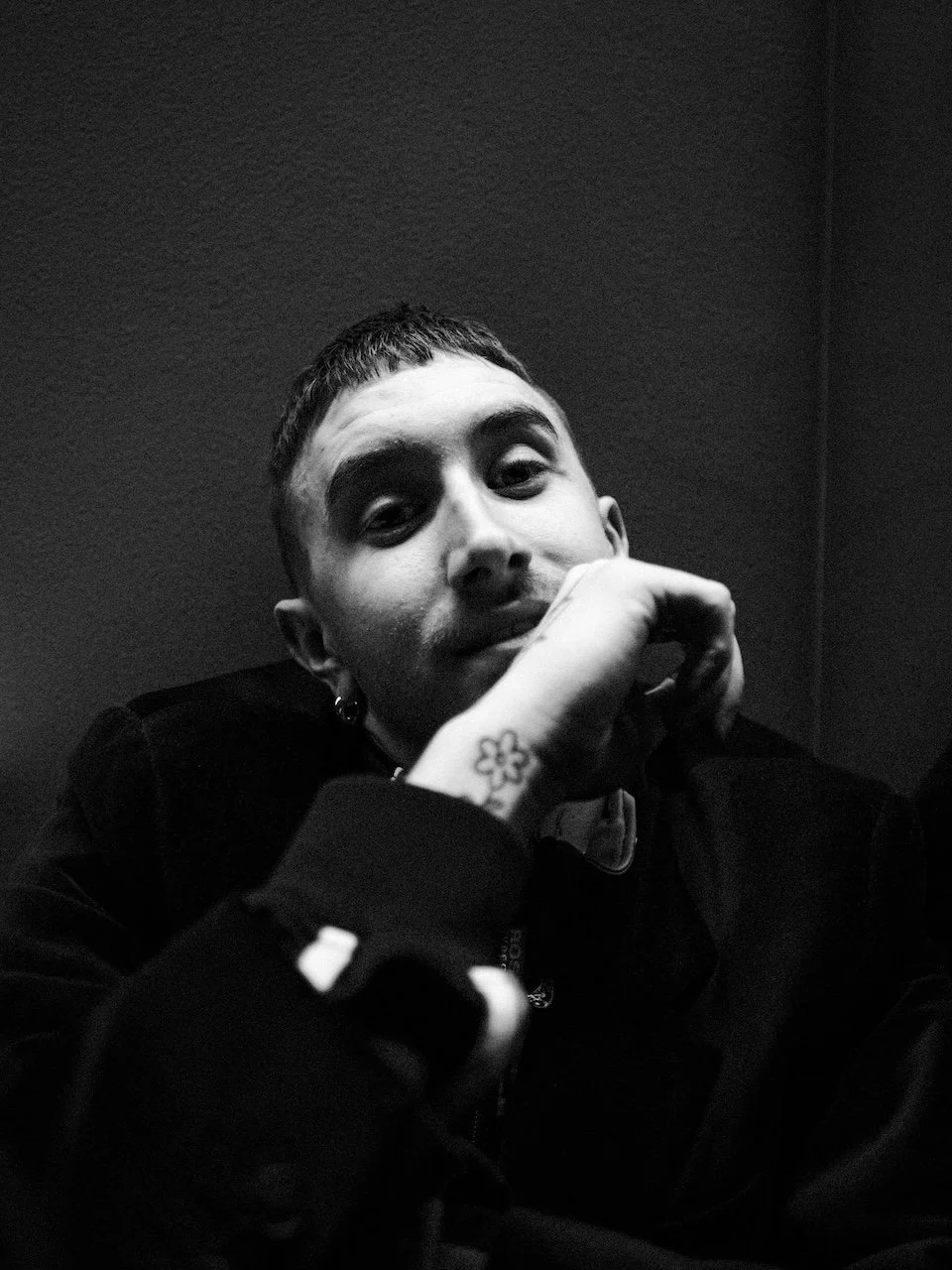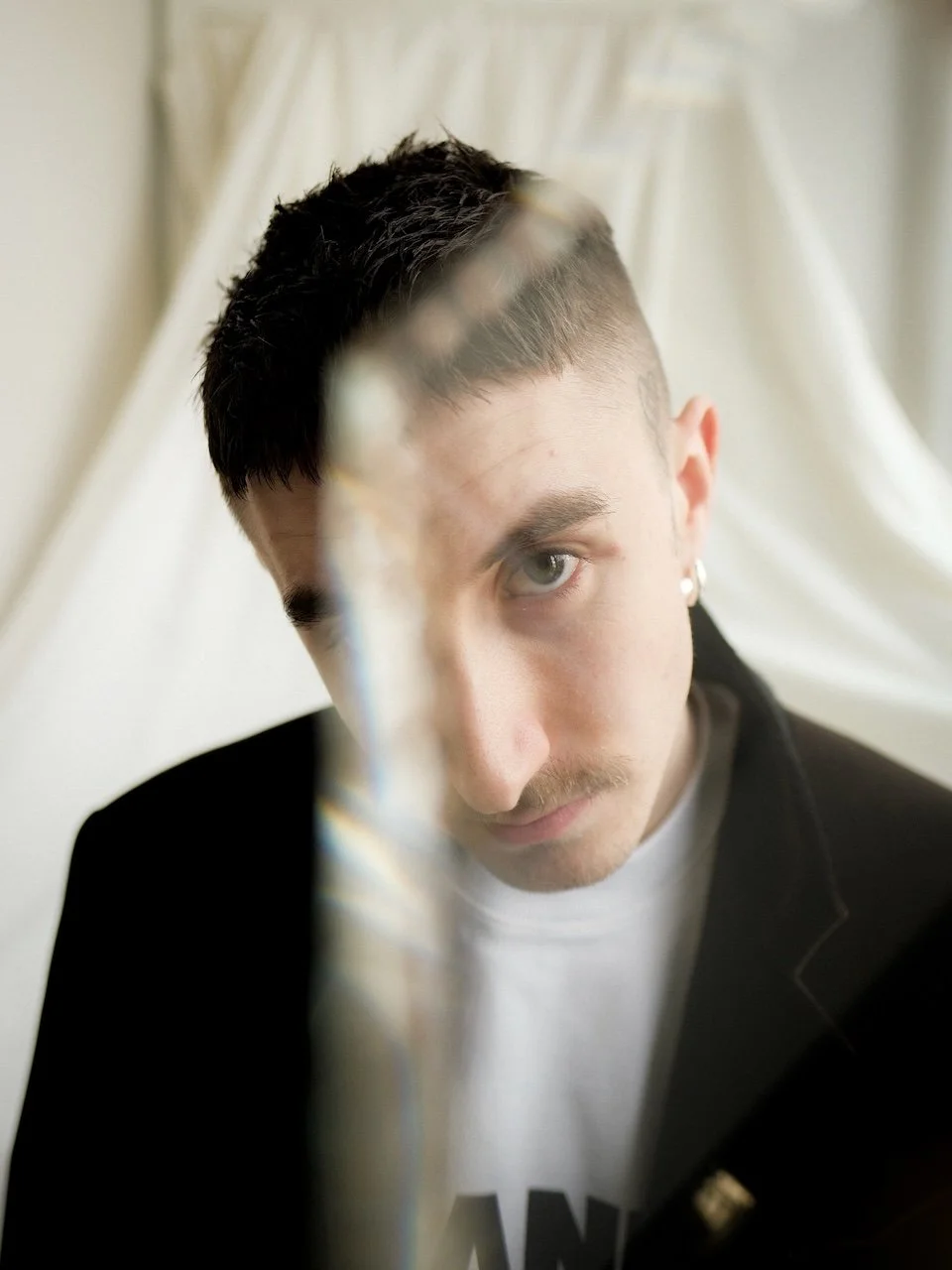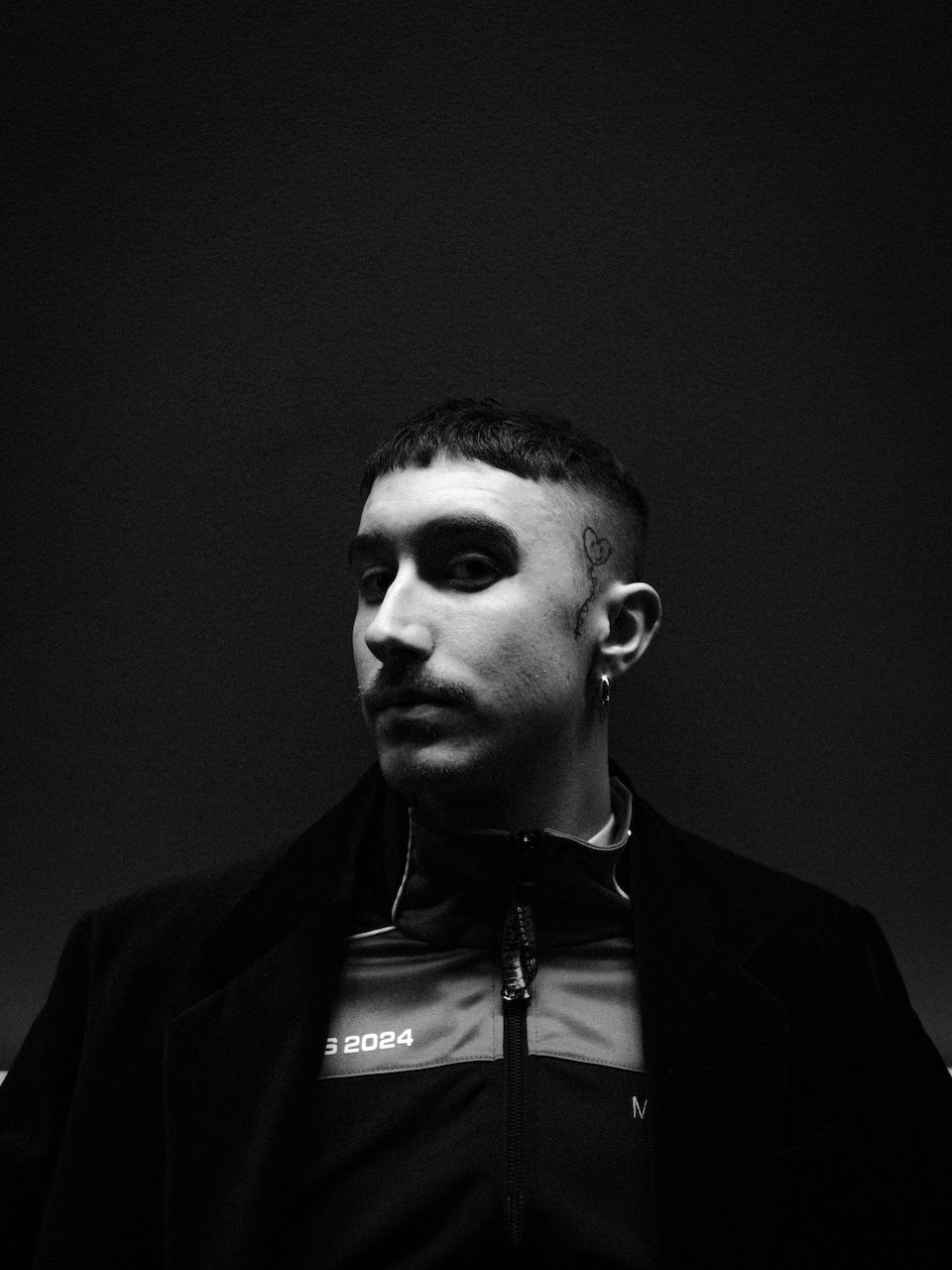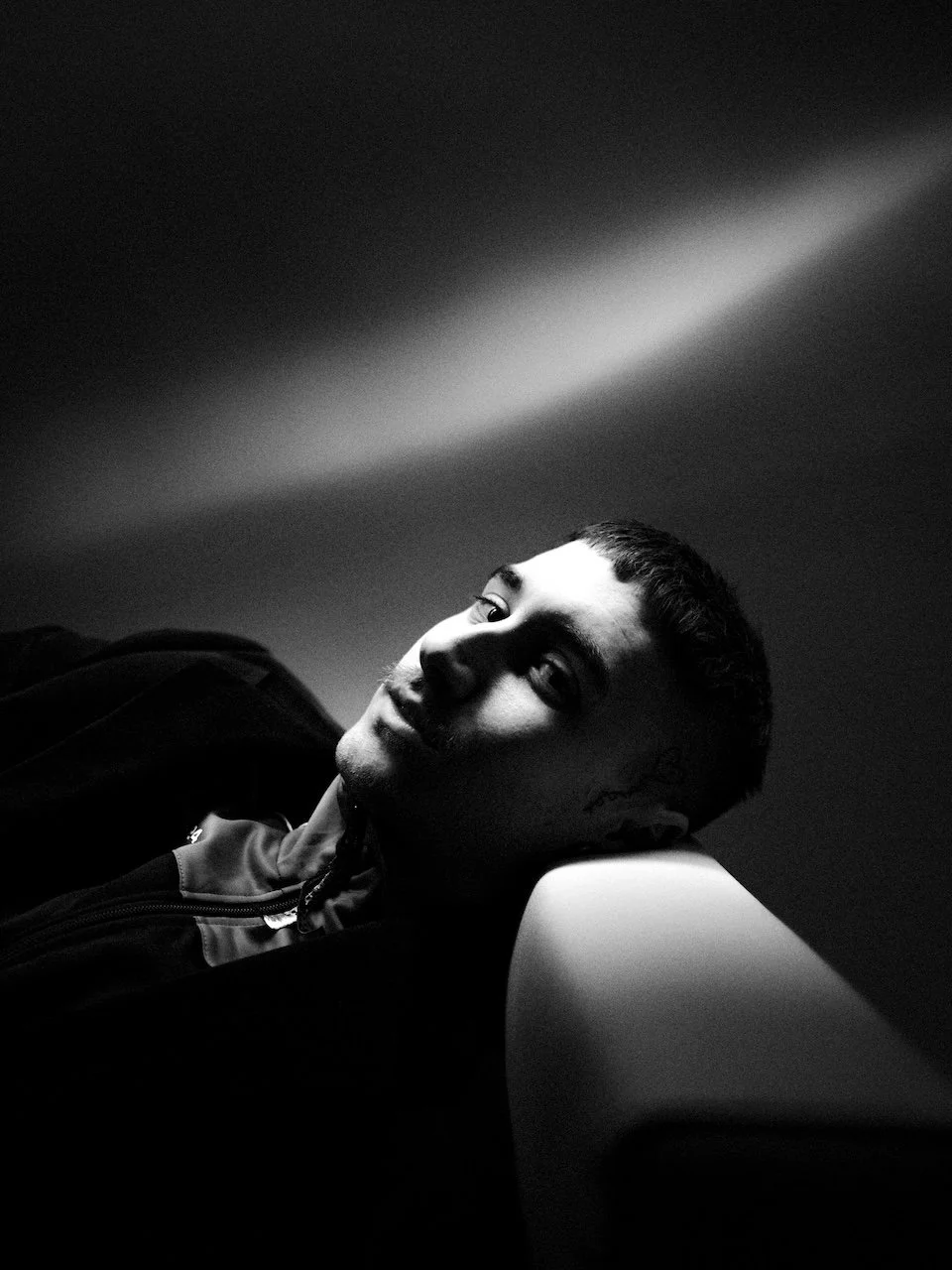IN CONVERSATION WITH CRYME
Interview by Samo Šajn
In less than a year, Berlin based artist CRYME has turned his idea for SEVEN into one of the most exciting new labels. Started in 2024 with Glenn Elliot, SEVEN is about more than just records, it’s about fairness, inclusivity, and giving artists real support. In its first year, the label has released compilations and EPs, launched a popular mix series, hosted showcases in Berlin and Amsterdam, and will soon open its own store. We spoke with CRYME about how SEVEN started, what makes it different, and where it’s heading next.
SEVEN has done a lot in less than a year. Releases, mixes, showcases, even plans for a store in Berlin. What has surprised you most about how fast things have grown?
To be honest, the whole growth and success has been a surprise! We started out simply wanting to release music we loved from artists we respected, and it’s been amazing to see how well it’s been received. The biggest surprise has been how many records we sell through stores. We thought most people would buy on Bandcamp, but actually many more buy through record shops and that means our artists are reaching completely new audiences. The feedback and support we’ve had from shops has been incredible. Stores like Elevate, OYE, and Latitude in Berlin, Inch by Inch in Leipzig, Kompakt in Cologne, and KillaCutz in Amsterdam always keep our whole catalogue in stock, which is such a special feeling.
You’ve said SEVEN is more than just a label. What made you want to build something bigger than a typical label?
From the very beginning, it felt obvious that SEVEN should be more than just a place to release music. We wanted it to be something that brings people together and makes them feel part of a community. For us, SEVEN is about more than sound, it’s about identity and connection. Maybe you hear a SEVEN record, maybe you wear a SEVEN shirt, but either way it becomes part of your world. The message has always been togetherness, understanding, and looking for the best in people. It all happened naturally, but it was always in the DNA.
The label was born from Berlin but already feels international. Do you see it more as a Berlin-rooted project or part of a global underground?
Right now, it’s very Berlin-rooted. This is where we live, where we started, and it’s still the best place in the world for what we do. People sometimes complain about Berlin, or say its best days are behind it, but we love the city, the people, the culture, the history. Long term, of course we want SEVEN to feel like part of the global underground, and we’re already starting to see that happen. But Berlin will always be our home base, no matter how far we grow.
CRYME, you’re an artist yourself. How does wearing both hats, artist and label founder, change the way you support your roster?
Being an artist really helps me understand how other artists feel and what they need. I know from experience what it’s like to be treated well, or badly, by labels and promoters, so I built SEVEN on that perspective. Musically, my own work has always sat between house and techno, so naturally that’s reflected in the label’s direction. When I listen to demos, I’m not just thinking about “what will sell” but about how the music fits with our vision and gives artists the space to express themselves.
Many artists say signing with SEVEN feels different because of the artist-first approach. Can you share a story that shows this difference?
We hear from so many friends about negative experiences with labels, no contracts, no royalty statements, no proper communication, sometimes not even knowing their release date until it pops up on Instagram. We wanted to do the opposite and create a real artist-first family.
One story that really stuck with me: an artist we knew had been sick for a while, so we sent him a care package with vinyl, merch, and a “Get Well Soon” note. His daughter overheard him talking about us and even made him a little button with “SEVEN” on it. Later, he sent us a demo we loved, which is coming out as SEVEN7011 in May 2026 with remixes from Cinthie and Deetron. He told us he chose SEVEN because he felt valued and at home here. That meant a lot, it shows what happens when you genuinely care for artists.
SEVEN often invites techno artists to release house tracks for the first time. How do you encourage that, and why is it exciting?
It really started naturally. Most of our friends were techno artists, but when we hung out, they often had this hidden love for house music. SEVEN became a safe space for them to show that other side of themselves. Now it’s snowballed, we don’t even need to encourage it anymore. Techno artists come to us asking if they can release house with us. I think it works because that energy was already there, it just didn’t have a platform until SEVEN.
Fairness and transparency are big parts of SEVEN. What does that actually mean for your artists?
It means clear contracts you can understand without a lawyer, and contracts that don’t take advantage of you. It means proper communication at every stage, so you know what’s happening with your release. It means a royalty split of 70/30 in the artist’s favour, not the usual 50/50. And the only costs we deduct are mastering and design, which are agreed upfront. Honestly, it’s just basic professional respect, but in this industry, sadly, that’s not the norm.
The label makes sure queer and FLINTA artists are well represented. Why was that important from the start?
A lot of our friends are from these communities, and they’re incredible artists, but often overlooked because they’re not “big enough.” It creates a cycle where they can’t get opportunities and therefore can’t grow. We wanted to break that by creating a platform that consistently supports queer and FLINTA voices, not as an exception but as a standard.
You also create spaces for the community. How does this approach shape SEVEN’s identity?
For us, it’s second nature. It shows up in a lot of different ways, keeping our records and merch affordable because we know many fans don’t have much spare cash, or choosing bright, colourful designs because we want people to feel joy when they see SEVEN. Community is not a side project, it’s central to what we do.
Running an independent label isn’t easy. What’s been the hardest part of keeping SEVEN fair and ethical while also making it work financially?
Well, first, I wouldn’t say it fully “works” financially yet! Music is a brutal industry, and streaming has cut into so much of the revenue. But we’re lucky to be well funded, and we can see a path to sustainability as we grow. More importantly, we don’t see fairness as a barrier, it’s the reason we succeed. Artists trust us with their best music because we treat them well. That’s what makes SEVEN strong.
Independent labels often start as passion projects, but SEVEN feels built for the long term. What lessons would you share with other DIY founders?
It’s simple: be nice, be kind, and treat people the way you’d want to be treated. Forgive quickly, practice empathy, and enjoy the process. If you do those things, you’ll build something that lasts.
The mix series has featured Zombies in Miami, Apolonia, Christoph Faust and more. How does this fit into SEVEN’s vision?
The mix series has been way more successful than we expected, big listening numbers, huge demand from artists. It’s already weekly, with a year-long waiting list. We use it to introduce new talent, give them exposure, and also to showcase SEVEN’s sound beyond just records. For me, SEVEN is first a record label, then a mix series, with events in third place.
If SEVEN could be remembered for one thing five years from now, not a release, not a party, but a legacy. What would it be?
I’d love SEVEN to be remembered as a label that put out great music, treated people well, and left a positive impression. Something people genuinely loved.
Looking ahead, what’s next for SEVEN in year two? Any big plans you’re excited about?
We’ve got a lot coming up. The biggest milestone is opening our own physical store at Torstrasse 220 in Berlin this November, which will be a huge step. We’re also expanding our distribution so more record shops carry our releases. And musically, we’ve got amazing new projects lined up from artists like Baka G, Stef de Haan, and Ackermann. It’s going to be an exciting year.
Find out more about SEVEN:





